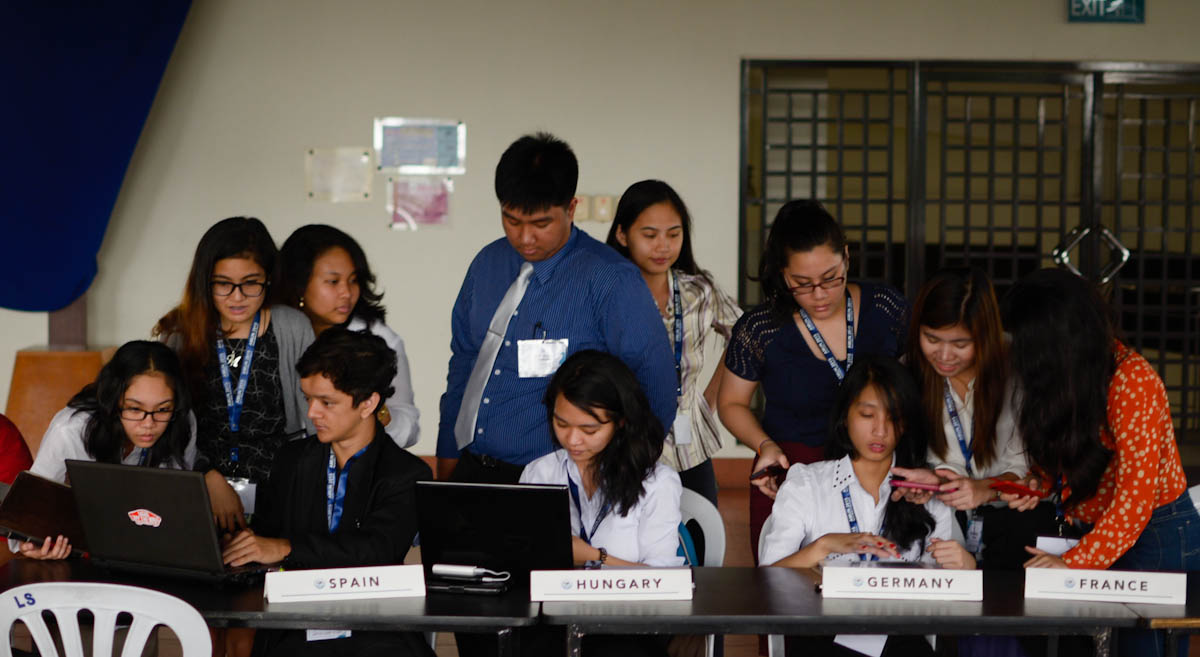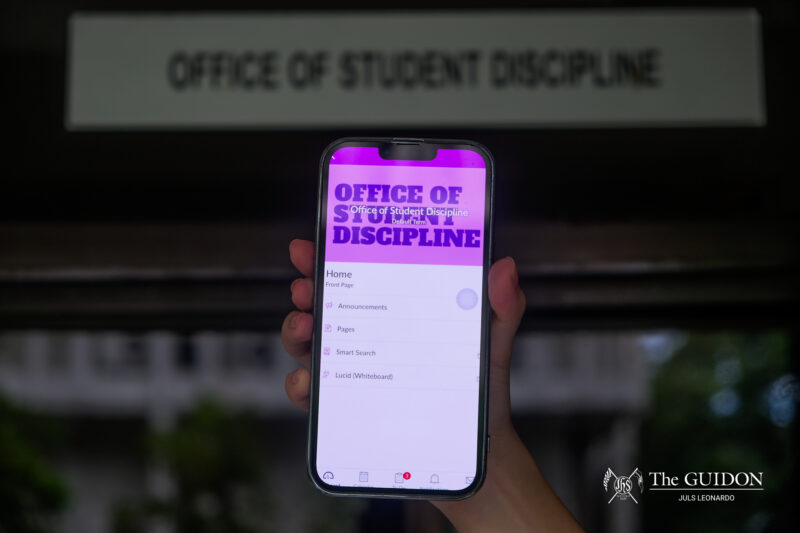STUDENT LEADERS gathered to discuss various global issues at the 2015 Ateneo: Model United Nations (Amun) Conference, an annual flagship project of the Ateneo Association of European Studies Students (Aeuss), held on January 29 to 31 at the Ricardo and Dr. Rosita Leong Hall Auditorium.
The Amun is a simulation of the proceedings of the United Nations’ (UN) Human Rights Council (HRC), the UN Social, Humanitarian and Cultural Council (Sochum), the UN Economic and Social Council, and the UN Security Council.
The delegates were divided among the said councils to discuss, strategize and formulate resolutions in response to specific global issues.
This year’s Amun centered on the following issues: Statelessness, forced marriages, role of the nation-state in media freedom, linguistic extinction, energy security and preservation of economic stability in Ebola-stricken countries.
In an interview with The GUIDON, Aeuss Minister for Diplomacy Rianna Garcia said that the Amun ultimately strives to serve as a “perfect platform” for the student delegates by honing their leadership and critical analysis skills in the face of the world’s most pressing current issues.
She said that an expansion plan for the Amun was put into action this year by inviting student delegates from outside Metro Manila and by formally establishing the HRC and Sochum committees, which were previously under General Assembly.
Official representative of the United Nations High Commissioner for Refugees (UNHCR) in the Philippines Bernard Kerblat served as keynote speaker of the conference.
Devising solutions
In his speech, Kerblat explained that the UNHCR recognizes five kinds of victims of forced displacement: Asylum seekers, internally displaced person (IDP), refugees, returnees and stateless persons.
Asylum-seekers are persons whose application for asylum or refugee status is pending at any stage in the asylum procedure, while IDPs are those who are displaced within their country.
IDPs remain under the protection of their own government and retain their rights and protection under both human rights and international humanitarian law.
Persons recognized as refugees are those granted a temporary or complementary form of protection, and returnees are groups of persons who are outside their country or territory of origin and who face protection rights similar to those of refugees that are not ascertained.
Stateless persons are those who are not considered nationals by any state under the operation of its laws.
Kerblat told the delegates that they must help the aforementioned and “reach the mind and the heart of the future of this country.”
“You present the future. We, our generation, have failed on many accounts. Your challenge is to fix it,” he said.
Kerblat asked the delegates to speak up and support lawmakers in whichever field they choose to go to.
“Try to contribute to the resolution of displacement, including supporting legislation,” he said.
Council sessions
The Amun allowed the delegates to relay their personal take on the various issues tackled while engaging in a healthy dialogue with their fellow student leaders.
The Economic and Social Council discussed energy security and regaining economic stability in Africa after the Ebola outbreak.
Ebola is a highly transmissible hemorrhagic virus that killed over 1,900 people in West Africa in 2014.
The council arrived at two resolutions: To establish a non-binding international organization to secure energy and to regain economic stability with the use of a micro- and macro-economic approach.
European studies senior David Salvosa said that the non-binding international organization works towards a “smooth transition to renewable energy and less dependence on non-renewable energy.”
Salvosa was the principal author of the second resolution, which takes on a micro approach by tackling the immediate and present economic challenges, and a macro approach by sustaining long-term economic stability through tax breaks and tariff cuts, among others.
On the other hand, the Social Cultural Humanitarian council discussed language extinction and the role of media freedom in a nation.
Political science sophomore David Dayao explained that their council discussed preparations in the regulation of freedom of media and national security at the global scale.
The said council arrived at two resolutions, namely, preserving language through documentation and funding.
As for the Human Rights Council, legal management sophomore Paolo Palanca explained that the said council’s discussions centered on the issues of statelessness and prevention of forced marriages.
However, due to some internal issues, the council was not able to draft final resolutions.
Youth involvement
Amun was an opportunity for the delegates to understand their role in the world’s issues.
Legal management sophomore Paolo Palanca said Amun gave him the opportunity to see how the dynamics of international relations, customs and powers work hand-in-hand in the real world.
He noted that the conference drove him to learn more about and understand not just the issues per se, but the systems in place upon which they are hinged.
“I believe that it is experiences such as these that really help inspire the youth to find their calling and give them an opportunity to serve others,” Palanca added.
Moreover, Salvosa said that the conference helped him to think critically about issues that the world is confronted with.
He said that, in addressing these issues, the youth is responsible to be objective in their approach and work towards the common good.
“For practical purposes, [the youth should] be more involved [and] start small in the quest for change, especially in the current Philippine setting where much change is needed,” he said.







